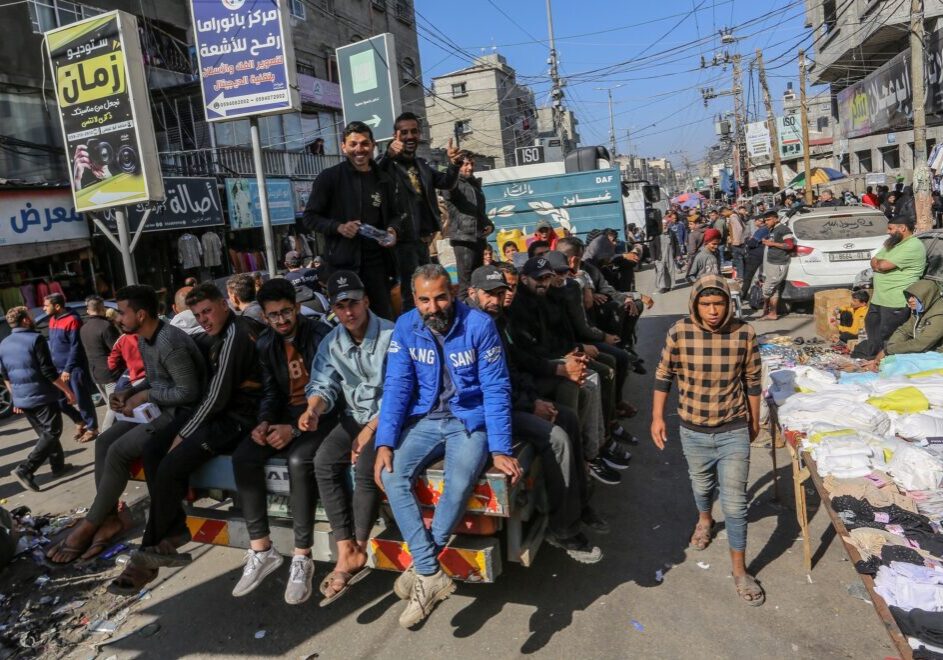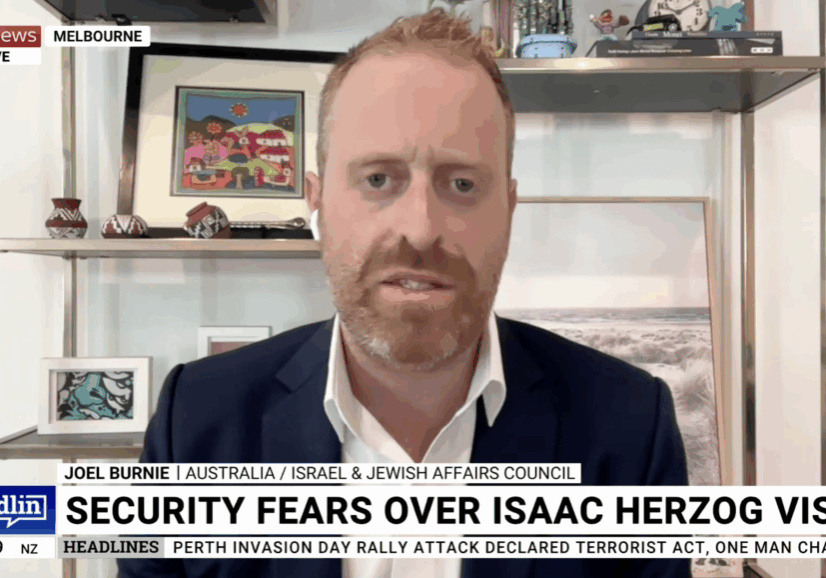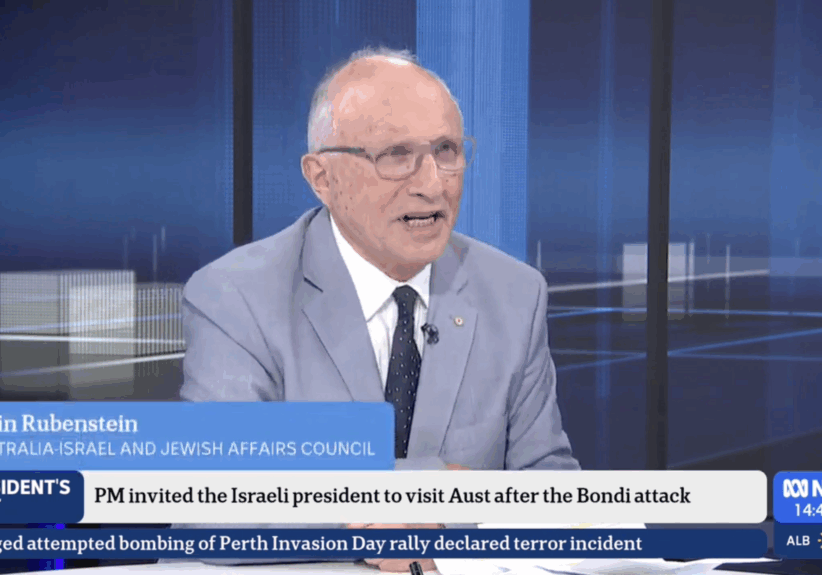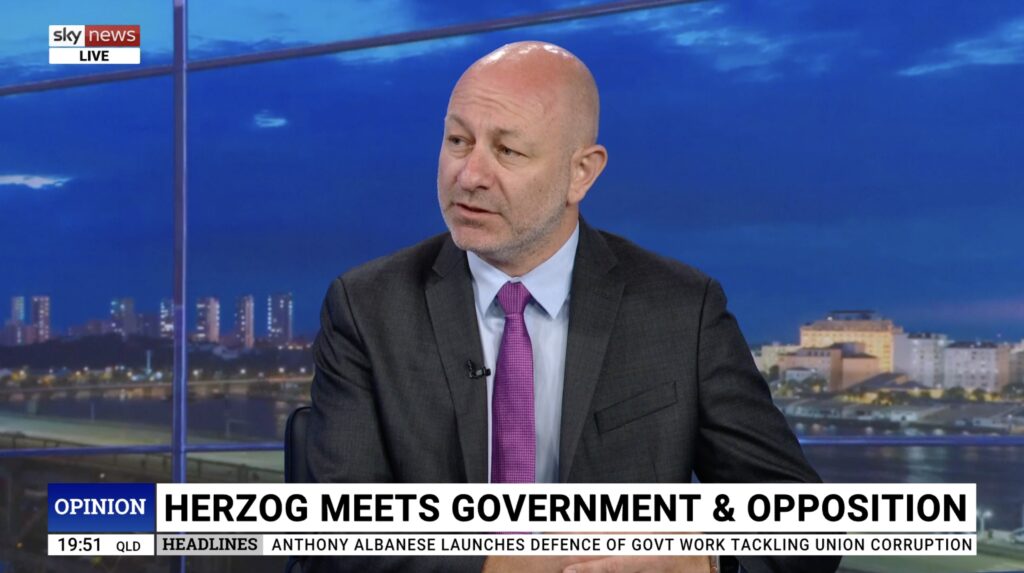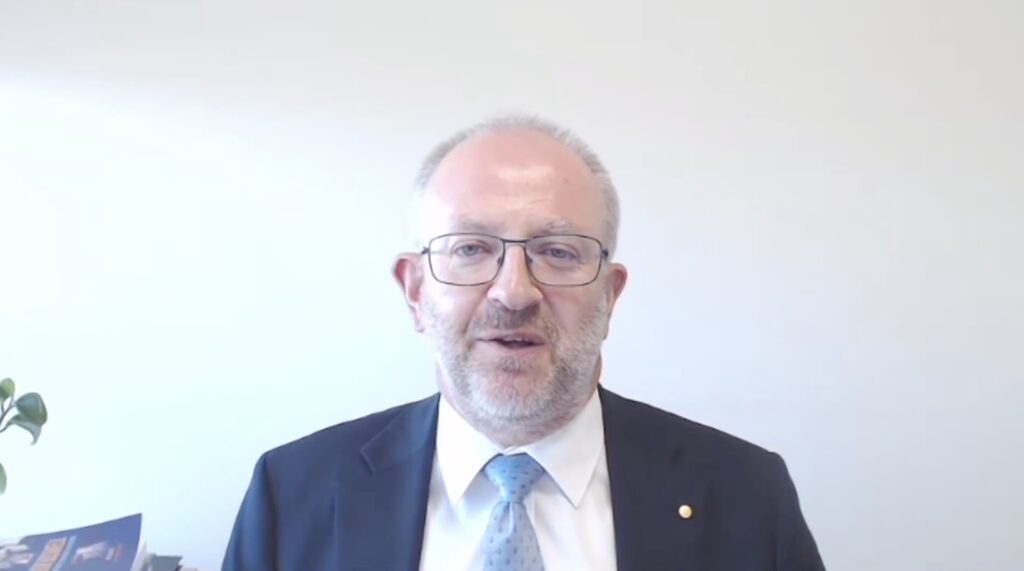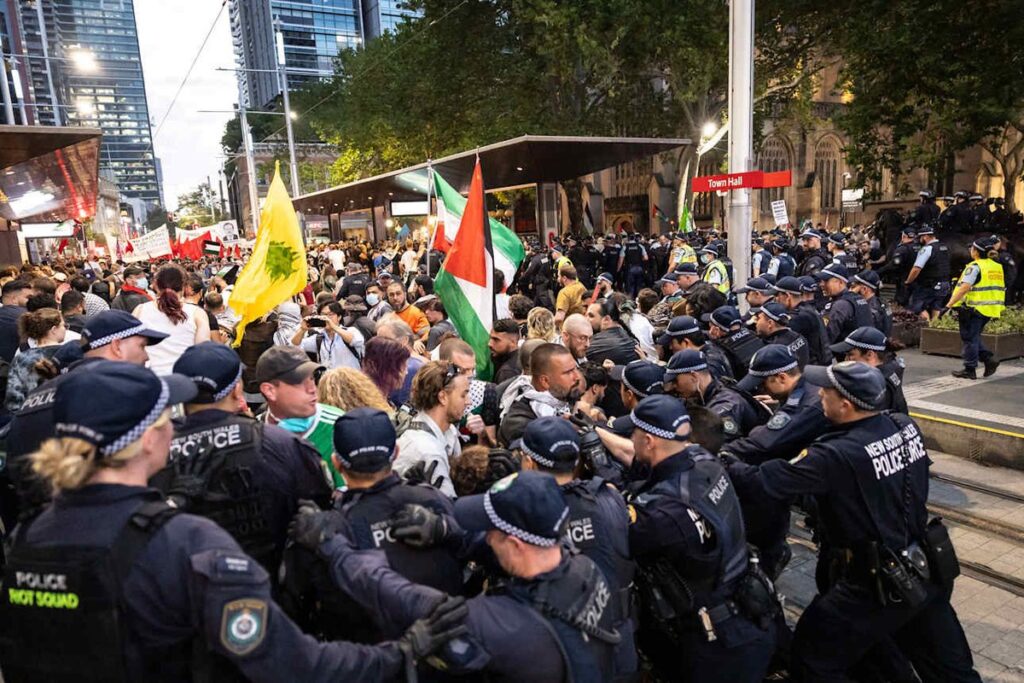FRESH AIR
PA hypocrisy on “anti-normalisation”
March 5, 2020 | Judy Maynard
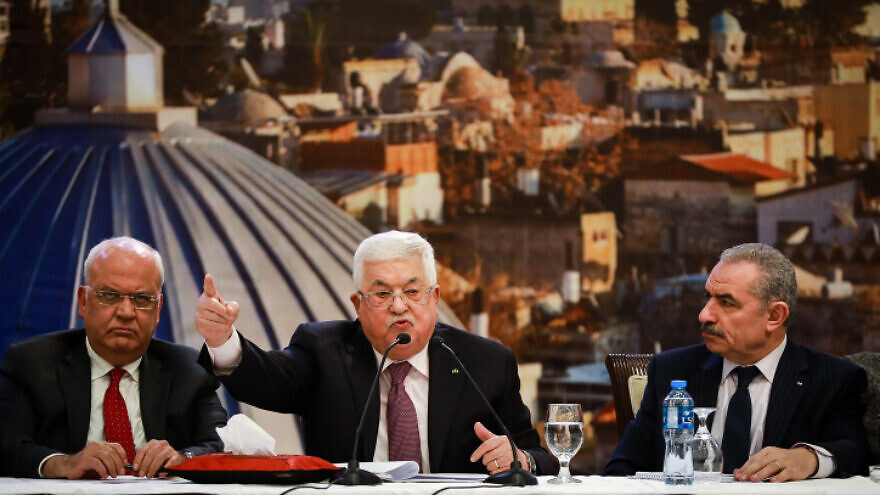
The latest episode in the annals of Palestinian anti-normalisation shows that, to mix metaphors, speaking out of both sides of your mouth can blow up in your face.
For many years “normalisation” – participating in any activity (including speaking) with Israelis that is not based on resistance – has been a term of abuse by the Palestinian leadership and large parts of Palestinian civil society. Even the most innocuous activities, like drinking coffee with Israelis, or having them turn up at your son’s wedding, could incur retribution by the Palestinian Authority. The self-sabotaging anti-normalisation campaign’s main victim has always been the Palestinian people themselves.
The Palestinian leadership also seeks to pressure their Arab brethren into adopting this mindset, even though they have lost considerable ground since the days when some of those brethren would wage war for them. Today some of the more influential Arab countries, such as Egypt and Jordan, have peace treaties with Israel, and others like Saudi Arabia are involved in “thawing” their relationship with Israel over common security concerns, and reportedly have considerable relationships with Jerusalem under the table.
The Palestinians have nonetheless doubled down against any actors suspected of even the slightest deviation from the primacy of their cause. Thus Lieutenant-General Abdel Fattah al-Burhan, Chairman of Sudan’s Sovereignty Council, was recently condemned on Palestinian social media as a traitor, a pig and most damningly, a Jew, for meeting with Israeli Prime Minister Binyamin Netanyahu.
At the same time as sabotaging peace efforts through its anti-normalisation campaign, the PA effectively organises and supports certain Israeli-Palestinian contacts.
Back in 2012, the Palestinian leadership created the Committee for Interaction with Israeli Society, headed by Mohammed Al-Madani, a member of the Fatah Central Committee. Over the years the Interaction Committee has arranged hundreds of meetings between Israelis and Palestinians. Against the backdrop of the Trump peace plan released in late January, and under the auspices of the Palestinian leadership, the Committee coordinated a series of meetings over the past month designed to garner and publicise opposition to the plan.
One was a conference in Tel Aviv on February 14, bringing together 20 senior Palestinian officials and the Israeli Peace Parliament Group, comprising mostly left-leaning former Israeli politicians and high-profile Arab Israelis. The conference was titled “yes to peace, no to annexation.” The participants duly voiced their rejection of the peace plan.
Another of the Interaction Committee’s engagements was with a group of Israeli journalists who were given briefings by high-level Palestinian officials and taken on a tour of the Palestinian Authority capital Ramallah on February 16.
When reports of these meetings appeared in the media, a furore erupted, directed especially at the Palestinian participants, who were denounced by several factions including Hamas and Palestinian Islamic Jihad, and accused of treachery and collaboration.
On February 17, protesters took to the streets in Ramallah, demanding the end of “normalisation meetings”; students at Birzeit University held a sit-in over the participation of a member of the university’s board of trustees; and assailants threw Molotov cocktails at a Ramallah restaurant where a meeting had been held. Birzeit issued a statement affirming the university’s “clear policy of rejecting any form of normalisation with the occupation.”
Meanwhile, a video of the Israeli journalists in Ramallah, edited so that only those with kippot were visible, was posted on social media with the claim they were “Jewish settlers who had invaded Ramallah.”
The hypocrisy of Palestinian leaders demanding anti-normalisation from the Palestinian public while actually, quite sensibly, sponsoring some outreach to Israeli society themselves, has long been evident, but following these events even some Palestinians were moved to call it out.
Issa Hijazi, an academic from Hebron, said, “The Palestinian leaders have been condemning normalisation between Arabs and Israel, but now we see they are doing the same thing. [They] keep sending contradictory messages to their people.”
Ramallah businessman Awad Abdel Haq said, “Some Palestinian officials have been telling us in the past three weeks that they have decided to cut all ties with Israel. It seems to me Palestinians are angry not because of the meetings with Israelis but because they see that the Palestinian leadership is lying to them on a daily basis.”
Hypocrisy was evident on both sides. One Palestinian woman who attended the Tel Aviv conference and had received dozens of hate messages as a result said, “What surprised me was that among those who were criticising me was a Palestinian journalist working for a major US news organisation in the West Bank. That represents the height of hypocrisy. If you hate Israel and the US so much, why are you working for an American media outlet?”
Hamdallah Hamdallah, mayor of the West Bank town of Anabta, also faced a barrage of criticism. He defended himself by pointing out he’d taken part at the PA’s invitation, but resigned nevertheless, saying “I am tired, not from work but from quarrels and nonsense, and I am leaving this burden for anyone who can carry it.”
Journalist Lahav Harkov, part of the Israeli delegation which visited Ramallah, has given her own account of the fiasco, along the way excoriating two well-known Palestinian leaders for their cowardice.
In a Twitter exchange on February 17 and 18, responding to Palestinian criticism of her visit to Ramallah, Harkov responded “I was literally a guest of the Palestinian Authority, but ok, sure.”
Someone calling themselves Palestina Online tweeted, “@DrHananAshrawi @ErakatSaeb @ DRShtayyeh explain this! Shame on you…how does PA dare to invite this ‘journalist’ who denies Palestinian rights every single day.” In response to this tweet, both Hanan Ashrawi and Saeb Erekat condemned the meeting with Israeli journalists. Ashrawi tweeted, “It is disgraceful” and Erakat chimed in with “I agree”.
Ashrawi, a Palestinian legislator, academic and media darling, is founder and chair of the internationally funded NGO Miftah – “the Palestinian Initiative for the Promotion of Global Dialogue and Democracy.” Miftah has been accused of publishing antisemitic blood libels and glorifying Palestinian suicide bombers.
Erekat, PLO secretary-general and “chief negotiator”, must have a near-empty diary given his reticence to actually engage in peace talks with Israel or dialogue with Israelis over the last several years.
As Harkov says, “the PLO has had a Palestinian Committee for Interaction with Israeli Society” but “Ashrawi and Erekat are too cowardly to stand behind their own organisation’s official position and the people who are acting upon it.”
She accuses them of throwing “these officials, who were working under the PLO’s auspices, under the bus”, adding, “We Israeli journalists were just tools in their cynical anti-normalisation game, which will do nothing to bring peace any closer.”
In the ensuing protests, Abbas, Ashrawi, Erekat and other Palestinian leaders reaped what they had sown in inciting rejection of anything resembling a peace initiative.
The inherent contradiction of the PA, with its public anti-normalisation stance, initiating “interaction” meetings with Israelis was not lost on Palestinians, many of whom now erupted in anger.
As Birzeit student Ayman Samara said, “I believe many Palestinians are angry because they understand that the Palestinian leadership is playing them for fools. President Abbas recently announced that he has decided to cut all relations with Israel… Palestinians see him and his senior officials doing the exact opposite.”
Palestinian writer Lama Khater spoke of the PA’s “huge contradictions”, making the point that days before the Tel Aviv conference, Saeb Erekat condemned the meeting between Netanyahu and the Sudanese al-Burhan as a “stab in the back of the Palestinian people…How can Erekat talk about a stab in the back, while Abbas is meeting in New York with war criminal [former prime minister] Ehud Olmert? How can the Palestinian Authority criminalise normalisation between some Arab states and the occupation while it’s doing the same thing?”
Meanwhile, Dr Warda Sada, an academic who describes herself as a “Palestinian-Israeli peace activist”, is just one of many engaged in such work who reject the notion that such peace activism amounts to the demonised “normalisation”. She believes it is important for Israelis and Palestinians to meet, and this can only take place under the aegis of the PA as there are no free Palestinian NGO alternatives. “I meet many Palestinians who support normalisation with Israel, but they are afraid of the extremists; that’s why only a PLO committee can carry out such activities.”
Moreover, the Palestinian public actually agrees with Sarda, and not the anti-normalisation activists or the public stance on normalisation taken by the PA.
In a recent survey of Palestinians, 67% of West Bank respondents and 61% of Gazans agreed at least “somewhat” with the proposition: “Palestinians should encourage direct personal contacts and dialogue with Israelis, in order to help the Israeli peace camp advocate a just solution.” This is perhaps a surprising result considering the years of demonisation by Palestinian leaders of all such contact with Israelis.
The anti-normalisation campaign exposes Palestinian leaders to the charge of being hypocrites lacking credibility. Yet even more importantly, it represents numerous wasted opportunities that have gained the Palestinians nothing and made genuine peace, including the achievement of Palestinian statehood, more distant.
Tags: Fatah, Israel, Palestinian Authority, Palestinians
RELATED ARTICLES

Herzog visit gives comfort and hope to our grieving community: Arsen Ostrovsky on Sky News







